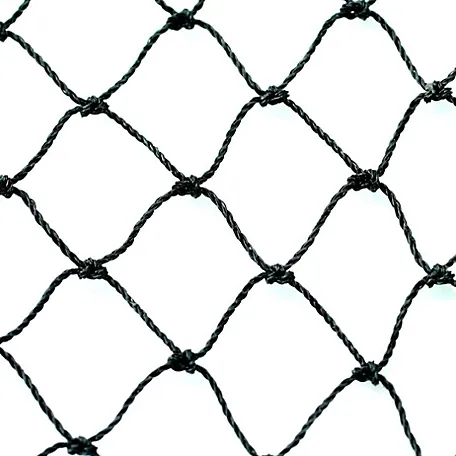-
 Afrikaans
Afrikaans -
 Albanian
Albanian -
 Amharic
Amharic -
 Arabic
Arabic -
 Armenian
Armenian -
 Azerbaijani
Azerbaijani -
 Basque
Basque -
 Belarusian
Belarusian -
 Bengali
Bengali -
 Bosnian
Bosnian -
 Bulgarian
Bulgarian -
 Catalan
Catalan -
 Cebuano
Cebuano -
 China
China -
 Corsican
Corsican -
 Croatian
Croatian -
 Czech
Czech -
 Danish
Danish -
 Dutch
Dutch -
 English
English -
 Esperanto
Esperanto -
 Estonian
Estonian -
 Finnish
Finnish -
 French
French -
 Frisian
Frisian -
 Galician
Galician -
 Georgian
Georgian -
 German
German -
 Greek
Greek -
 Gujarati
Gujarati -
 Haitian Creole
Haitian Creole -
 hausa
hausa -
 hawaiian
hawaiian -
 Hebrew
Hebrew -
 Hindi
Hindi -
 Miao
Miao -
 Hungarian
Hungarian -
 Icelandic
Icelandic -
 igbo
igbo -
 Indonesian
Indonesian -
 irish
irish -
 Italian
Italian -
 Japanese
Japanese -
 Javanese
Javanese -
 Kannada
Kannada -
 kazakh
kazakh -
 Khmer
Khmer -
 Rwandese
Rwandese -
 Korean
Korean -
 Kurdish
Kurdish -
 Kyrgyz
Kyrgyz -
 Lao
Lao -
 Latin
Latin -
 Latvian
Latvian -
 Lithuanian
Lithuanian -
 Luxembourgish
Luxembourgish -
 Macedonian
Macedonian -
 Malgashi
Malgashi -
 Malay
Malay -
 Malayalam
Malayalam -
 Maltese
Maltese -
 Maori
Maori -
 Marathi
Marathi -
 Mongolian
Mongolian -
 Myanmar
Myanmar -
 Nepali
Nepali -
 Norwegian
Norwegian -
 Norwegian
Norwegian -
 Occitan
Occitan -
 Pashto
Pashto -
 Persian
Persian -
 Polish
Polish -
 Portuguese
Portuguese -
 Punjabi
Punjabi -
 Romanian
Romanian -
 Russian
Russian -
 Samoan
Samoan -
 Scottish Gaelic
Scottish Gaelic -
 Serbian
Serbian -
 Sesotho
Sesotho -
 Shona
Shona -
 Sindhi
Sindhi -
 Sinhala
Sinhala -
 Slovak
Slovak -
 Slovenian
Slovenian -
 Somali
Somali -
 Spanish
Spanish -
 Sundanese
Sundanese -
 Swahili
Swahili -
 Swedish
Swedish -
 Tagalog
Tagalog -
 Tajik
Tajik -
 Tamil
Tamil -
 Tatar
Tatar -
 Telugu
Telugu -
 Thai
Thai -
 Turkish
Turkish -
 Turkmen
Turkmen -
 Ukrainian
Ukrainian -
 Urdu
Urdu -
 Uighur
Uighur -
 Uzbek
Uzbek -
 Vietnamese
Vietnamese -
 Welsh
Welsh -
 Bantu
Bantu -
 Yiddish
Yiddish -
 Yoruba
Yoruba -
 Zulu
Zulu
Durable Stainless Steel Mesh Screens for Various Applications and Industries
The Versatility and Applications of Stainless Steel Mesh Screens
Stainless steel mesh screens have become indispensable in various industries due to their unique properties and versatility. Made from high-quality stainless steel wire, these screens are designed to withstand harsh environmental conditions while providing excellent performance. The combination of durability, corrosion resistance, and aesthetic appeal makes stainless steel mesh screens a popular choice for a wide range of applications.
What is Stainless Steel Mesh?
Stainless steel mesh is a fabric-like material made from woven or welded stainless steel wires. It can be produced in various sizes and configurations, such as mesh count, wire diameter, and weave type, allowing for customization according to specific needs. The mesh can be categorized into two primary types woven mesh, which is created by interlacing wires, and welded mesh, which consists of wires that are welded at their intersections. Each type has distinct attributes making it suitable for different applications.
Advantages of Stainless Steel Mesh Screens
One of the most significant advantages of stainless steel mesh screens is their resistance to corrosion and rust. Unlike other metals, stainless steel maintains its integrity in the face of moisture, chemicals, and extreme environmental conditions. This characteristic makes it ideal for applications in the food processing, pharmaceutical, and chemical industries, where hygienic conditions are paramount. Additionally, stainless steel screens are easy to clean and maintain, enhancing their longevity.
Stainless steel mesh also possesses remarkable strength and durability. The inherent strength of stainless steel ensures that the mesh can withstand considerable tension and pressure, making it suitable for filtration and separation processes. Depending on the wire gauge and mesh count, these screens can be engineered to filter particles of various sizes, from coarse debris to fine powders.
stainless steel mesh screen

Further, stainless steel mesh screens provide excellent transparency and visibility, allowing for good light transmission while still acting as a barrier
. This quality is particularly useful in architectural applications where aesthetic appeal and functionality must coexist.Applications of Stainless Steel Mesh Screens
The applications of stainless steel mesh are extensive. In the construction and architectural industry, stainless steel mesh is often used for decorative facades, safety barriers, and sunscreens. Its ability to offer both privacy and light filtration makes it a favored choice for modern building designs.
In the industrial sector, stainless steel mesh screens are used in filtration systems across various industries, including water treatment, food processing, and petrochemical. They effectively filter out contaminants while allowing the passage of fluids and gases, ensuring operational efficiency and product quality. Additionally, stainless steel meshes are vital in sandblasting and shot blasting processes, protecting equipment while ensuring even surface finishes.
In agriculture, stainless steel mesh screens are utilized in irrigation systems, protecting pumps and filtration systems from debris and contaminants. They also find applications in beekeeping, where mesh screens are used in hive covers to provide ventilation while keeping pests at bay.
Conclusion
The versatility of stainless steel mesh screens cannot be overstated. Their unique combination of durability, corrosion resistance, and aesthetic appeal makes them an ideal choice for numerous applications across various industries. As technology continues to evolve, the development of more advanced stainless steel mesh products is likely to enhance their functionality further and expand their use. Whether in construction, filtration, agriculture, or any other sector, stainless steel mesh screens have established themselves as a reliable solution for a myriad of challenges. Understanding their properties and applications can help industries harness their full potential, leading to more efficient processes and enhanced product quality.
-
Shipping Plastic Bags for Every NeedNewsJul.24,2025
-
Safety Netting: Your Shield in ConstructionNewsJul.24,2025
-
Plastic Mesh Netting for Everyday UseNewsJul.24,2025
-
Nylon Netting for Every UseNewsJul.24,2025
-
Mesh Breeder Box for Fish TanksNewsJul.24,2025
-
Expanded Steel Mesh Offers Durable VersatilityNewsJul.24,2025











